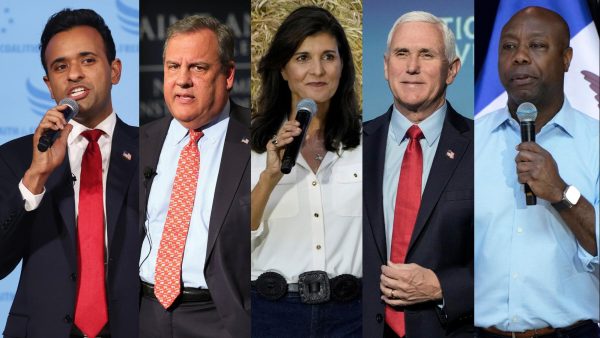Why Should We Learn History?
April 27, 2023
“The most effective way to destroy people is to deny and obliterate their own understanding of their history,” George Orwell writes in his classic dystopian novel, 1984. Amidst a growing sentiment in America that aims to augment history education—what is taught, what is erased, and what is swept to the wayside—the importance of learning the truth becomes all the more important.
While often pinned as an archaic and mind-numbing subject preaching ancient documents, wars, and kings, history is inextricably linked with literature, music, and the fabric of our daily lives. For one, history offers a different way of seeing the world, allowing us to trace trends and causes of global events, make predictions, and forecast our own trajectories. From Flint, Michigan to Jacksonville, Mississippi, the most marginalized populations are often most vulnerable to resource scarcity, inequitable access to education, green space, and the like. These observations are not coincidences, but can be systemically traced across America’s urbanization and the discrimination it accommodated. For example, a study found that those with higher education and income levels tended to have access to more green space, since they could afford to purchase higher-value land [1]. Similarly, de facto segregation and redlining following the Civil Rights Movement impacted population distribution in American cities.
Recent data from the National Assessment of Educational Progress showed that in 2022, only fifteen percent of eighth graders were proficient in U.S. History. And although the pandemic’s effects on education must be considered, such dismal results are part of a widespread trend in the declining awareness of history, civics, and government among young people in America. As math and reading proficiency benchmarks take center stage, subjects that show up less on standardized tests are neglected. In response to the data deemed “stark and inexcusable” by Education Secretary Betsy DeVos [2], it is imperative that history and civic education are integrated into curriculums beginning in elementary school with equal consideration as core subjects. The newly unveiled 2024 federal budget allocated $73 million to support further education in American history and civics, but a change in mindset is essential to accompany new initiatives [3].
Outside of an academic context, history can help us learn more about our family histories and popular culture. As a nation of immigrants, diverse instruction helps all students appreciate and understand each others’ backgrounds and how they shaped the world today. Why are Shostakovich’s symphonies the way they are? Why do revolutions accelerate changes in linguistic patterns? From niche interests to broad questions, history not only encourages people to pursue curiosity and scholarship but also become better-informed citizens with the capacity to actively participate in government and decision-making. For example, Shostakovich’s music is known for being sharp in contrast, moody, and dark, which provoked an ideological struggle within the Soviet regime. Stalin believed his works to be too western and progressive, and threatened Shostakovich to conform to the ideal that Soviet music should be nationalistic and victorious [4].
As America experiences a decrease in humanities majors and an intensifying preference for science and technology, even prominent liberal arts institutions such as Tufts University, Vassar College, Bates College, Boston University, and the University of Notre Dame are seeing declines in humanities graduates of up to fifty percent, if not more. And in the past decade, the number of students pursuing history or English at the collegiate level has dropped by one third. While some prophecy “the end of the English major” [5], history and the humanities extend further than the isolated bookworms and ancient libraries of popular conception. Instead, history is a mosaic of cultures, societies, and collisions that underscores our democracy and way of life.
[4] https://www.therightnotes.org/shostakovich-and-stalin.html
[5] https://www.newyorker.com/magazine/2023/03/06/the-end-of-the-english-major





